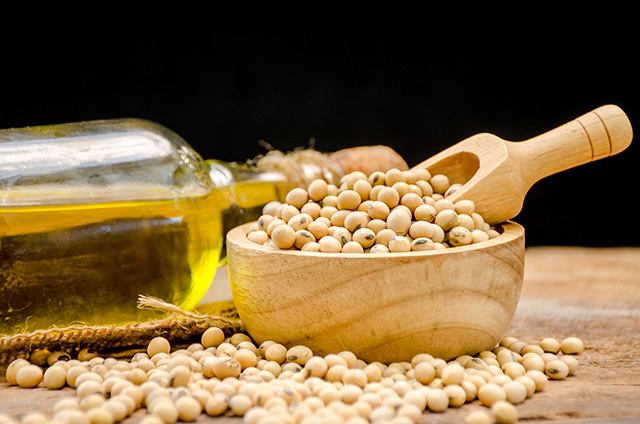
Planes may soon be running on sugarcane oil, if plans made by researchers from the University of Illinois come to fruition. Their proposal, extensively detailed in a paper published in Bioenergy, suggests that replacing fossil fuel with genetically-engineered sugarcane oil is an economically viable green alternative for the aviation industry. It has been acknowledged that carbon emissions from aircraft exceed the limits set by the United Nations. Alternatives need to be found now, stress researchers, as analysts warn that airline emissions may triple by 2050.
Unfortunately, not many biofuels are up to the challenge. Bio-jet fuels can be made from many plant materials, including oil crops and starchy plants. However, the current production of bio-jet fuels is extremely small. Scientists have, until recently, struggled to find an appropriate plant source that could produce enough oil to power large machines.
Sugarcane may be the answer. Considered to be the most productive plant in the world, authors of the study engineered sugarcane to yield more than 2,500 liters of biofuel per acre of land. In more understandable terms, this would be like a Boeing 747 flying for 10 hours on biofuel produced on just 54 acres of land. This is impressive compared to two other competing plant sources, soybeans and jatropha, which would need 15 and 13 times more units of land, respectively, to produce the same fuel capacity.
According to the researchers, their sugarcane-derived biofuel reduced fossil fuel emissions by 41 percent and yielded 93 percent more energy than what was required to make it.
But is it really “green”?
We need to emphasize that while sugarcane is a “natural” source, the plants used to make this “green” fuel are anything but. Natural sugarcane contains around 0.05 percent oil, which is too little to be converted into biodiesel. However, the researchers increased the plant’s oil production to 12 percent through genetic engineering.
They are now working on achieving a 20 percent oil production, which their computer models say is the limit. This, despite many botanists saying that increasing the amount of oil in sugarcane to even just one percent would make the plant toxic.
Preliminary research has shown that “even as the engineered plants produce more oil, they continue to produce sugar” -- an achievement for the scientists, but a potential threat to the public who may unknowingly be eating toxic sugarcane.
This consideration is not even noticed, though. The focus, it would seem, is how much fuel these plants can yield, and their economic advantages. Sugarcane-based oils produce more jet fuel per acre than any other plant-derived oil. (Related: Qantas biofuel-powered airliner required 150 acres of farm land to grow the fuel for a single flight.)
More genetic engineering
Sugarcane is mainly grown in Brazil, India, and China. It thrives on marginal land, making it unsuitable to be planted next to many food crops.
Inspired by the success of their initial experiments, scientists are now engineering sugarcane to be more cold-tolerant so it can be raised in more areas, particularly in the southeastern United States.
The goal is to devote at least 23 million acres of land to raise sugarcane that can produce 20 percent oil. If successful, the crop could produce 65 percent of the U.S. jet fuel supply. This would translate to airlines paying $5.31 per gallon, which is significantly less than biojet fuels sourced from algae or soybeans.
It is clear that scientists will continue with their plans to tinker around with the plant to create more “green” energy -- but we also need to consider the further implications of playing God.
Read more stories on other sources of “green” energy at Environ.news.
Sources include:
Please contact us for more information.





















